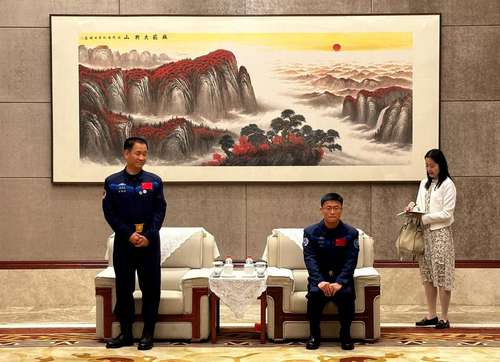Wuhan. Collaborating on lunar and deep universe exploration projects, defending the central role of the United Nations Organization on outer space and supporting the application of aerospace technologies are some of the agreements reached yesterday at the first Cooperation Forum Space Conference of the States of China, Latin America and the Caribbean, held in this city.
The so-called Wuhan Declaration, of seven points, is aimed at supporting member countries of the Community of Latin American and Caribbean States (Celac), including Mexico. Determine what the forum takes as an information center
, shares solutions on science, technology, applications, education and training; maintains the development of the space industry and promotes high-quality debate on this subject.
It adds that it supports the application of satellite communications, navigation and Earth observation technologies; is dedicated to the areas of environmental protection, meteorology, agriculture, forestry; water conservation, transportation, urban planning, disaster prevention and mitigation, especially in the fight against climate change.
In addition, it establishes promoting space cooperation between agencies and research institutes; jointly participate in consultations on international standards for outer space, and a long-term staff training mechanism.
Among other aspects, the countries agreed on the need to defend the central role of the United Nations Organization in outer space matters and comply with the 2030 Sustainable Development Goals, which address points about space and climate change.
The declaration follows from the treaty The principles governing the activities of States in the exploration and use of outer space, including the Moon and other celestial bodies, adopted in 1967, as well as the interest of China and the Celac countries in the peaceful uses of space technology.
As background, the Asian giant has already signed cooperation agreements with some countries in the bloc, such as Brazil, Venezuela and Bolivia.
During the opening of the forum, at the Wuhan International Exhibition Center, in a letter, the President of China, Xi Jinping, recognized the progress and role played by space cooperation with the countries of Latin America and the Caribbean.
The president expressed that there are great expectations for high-level space cooperation between the two parties.
Chinese Vice Premier Zhang Guoqing noted that China is willing to work with Latin American and Caribbean countries in order to strengthen the synergy of development strategies in the field of space, deepen cooperation in scientific and technological innovation. , create more application scenarios, promote industrial complementarity and mutual improvement, and intensify talent exchanges.
Luther Castillo Harry, Minister of Science, Technology and Innovation of Honduras, country with the presidency for the time of Celac, read the congratulatory message from the president, Xiomara Castro.
The forum was part of activities to mark China’s Space Day and commemorate the launch of its first satellite. Dongfanghong-1 into space on April 24, 1970.
